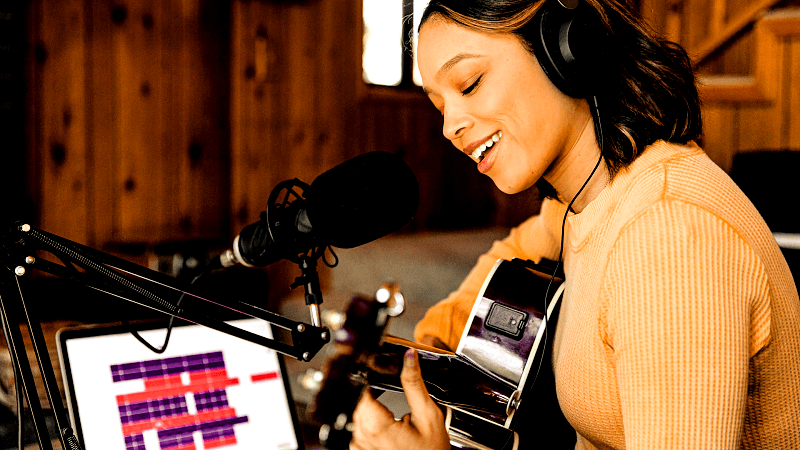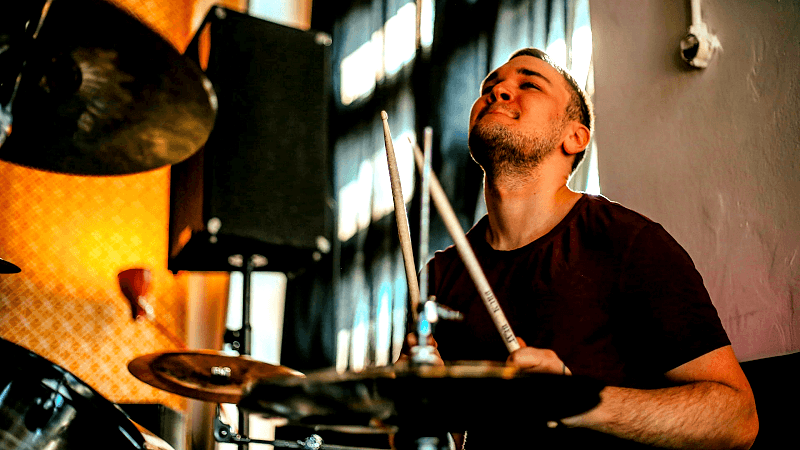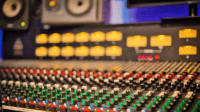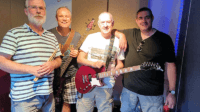How to save money in the recording studio
Are you looking to produce your music professionally on a budget? Here’s my essential guide to save money in the recording studio, and get the best results.
Songwriters, artists and bands often get started by recording their own music at home. However, they may discover it’s not as easy as it looks to achieve the desired result. And many musicians are not tech savvy or interested in investing in their own home-recording equipment.
The main limiting factors of a home recording are:
the recording equipment
the room acoustic
the studio engineering know-how
and music production experience
Home recording is a great place to start and can be done on a very tight budget, but it will fall short when it comes to professional sound quality.
Make a top quality recording (not a demo) on a budget
If your aim is to produce your music and reach for the radio-ready sound, then you need to get serious about investing in professional studio recording and production.
Or if you want to record a song, and know you need music production help, then you would also be better off budgeting for a music producer and recording service combined.
How can you be sure to make the most of your budget, and how much does it cost to make a record anyway?!
This article will look at:
How much does it cost to record a song?
The bear traps which will suck your budget dry
My top tips for saving money in the studio
How much does it cost to record a song?
There is no straight answer I’m afraid. This is rather like asking how much it costs to build a house – without plans and specifications no builder could possibly tell you. The same goes in the recording studio.
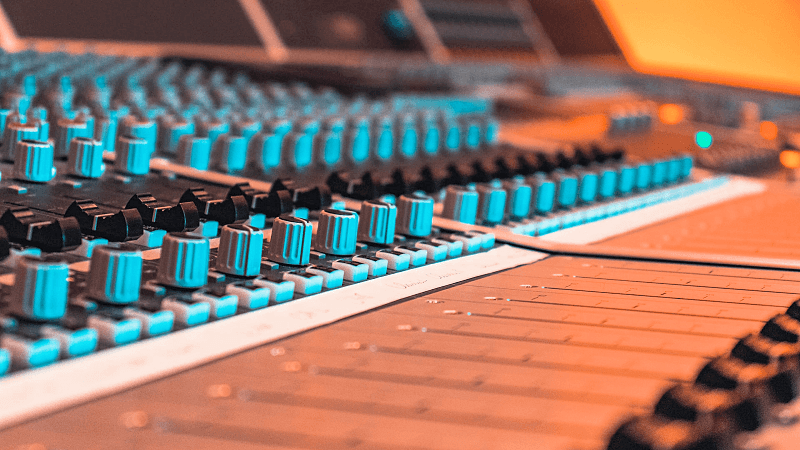
Use these key factors to determine your budget, which could range from £600 – £5000 for two to five days.
The key factors that will determine your music recording budget are:
- The complexity of your musical arrangement – the more parts there are, the more there is to set up, perform and record. Compare the set-up for an acoustic singer with guitar to a symphonic prog rock band and you get the picture.
- Do you want live musicians recorded or programmed sounds? If the live sound is imporant to you then you may need to budget for session musicans as well.
- How many musicians will you need?
- Do you want to use any specialist equipment or instruments? If you would like to borrow or hire equipment check if the studio can provide it and whether this will incur any extra charge.
- How quickly can you get your parts performed and recorded accurately and well? This is the major variable and thankfully it’s totally within your control.
Depending on the complexity of your arrangement, the numbers of players etc, you’re looking at £600-5000 for one song to be recorded, produced, mixed and mastered over 2-5 days. The cheapest option would be a singer-songwriter and guitar.
Budgeting tip
To estimate your expected costs, I recommend that you read the rest of this article, then do some homework to establish what sort of production you’re looking for. After that start your research. Look for music producers / studios who tick your boxes and make some calls to discuss your requirements. Shopping around is very important to get a feel for the place and people you’ll be working with.
Get expert ears on your song
Send me your home recording, I’ll have a listen and get back to you.
The bear traps which will suck your budget dry
What are the common pitfalls that will cost you money when producing music professionally?
The no. 1 trap is being unprepared and under-rehearsed.
Not being able to perform accurately and to a high standard within three takes will lengthen your studio session, create delays in getting your arrangement recorded and will have a knock-on effect on the rest of the process.
The second big pitfall is not communicating with your engineer before you arrive.
Remember that you know your music better than they do, and if you want the recording session to run smoothly and cohesively then you need to do some prep with your producer or engineer and hatch a plan.
A mahoosive error is not knowing the structure of your song like the back of your hand.
Don’t rely on your engineer to mind-read, otherwise it’ll be slow work getting the correct tempo and click track sorted. You will need to be able to communicate where you are in the song, be able to pick up from any section and not hesitate over chords and lyrics.
Also don’t be tripped up by a click track!
A click track can induce nerves if you’re not used to it. Using a click track is a decision, and in terms of saving time and money, a click track can help make the session more efficient. If you perform to a click track it allows an engineer/ producer to align and edit parts together because they can match each recorded track to bar numbers and beats more efficiently than if you played free time. It makes overdubs and editing much more efficient in getting everything to sit together. The click track does not have ultimate control over the song, but you do need to be able to stay in a reliable tempo. If the tempo varies, when it is not supposed to, then it becomes a piece of work to make that song sound good.
The studio will expose poor timing.
Again, if you struggle to play tight, then the engineer will have to tirelessly and meticulously edit your performances. So, there are two ways to cope with this. Firstly you can simplify the arrangement, especially if the vocal is the most important element. Secondly you can hire a session musician to realise your vision, obviously increasing costs. Otherwise if your performances are ‘scruffy’ you’re looking at a longer job to make your record sound radio-ready.
Top tips to save money in the recording studio
The biggest consumer of your budget is time!
Most time is taken in tracking your performances. The more efficient you are in giving a good representation of your song, the more you will accomplish in your studio session, and the less editing will be required post-recording.
Make sure your song is ready to record. Read my article here on pre-production and arrangements to help you prepare.
Talk to your studio engineer before your session about using the right recording approach.
If you’re a band, it may be best that you record the whole band at the same time, to catch the energy and interaction of the players. If you’re a singer-songwriter it may be better if you record a guide track and then layer up parts one by one in a multi-track fashion.
Know the structure of your song
Your engineer will be looking to map your song out across a grid. They will want to know the tempo and time signature of your tracks. So, know the structure of your song: verse, chorus, bridge etc. Be sure of a tempo and alert your engineer to any sections that vary the tempo and time signature.
Share any resources with your engineer
Do you have any home recordings of your song? If yes, send them to your studio engineer or music producer in advance. Do you have lyrics, lead sheet or music score? Send copies over. These are very valuable to your recording team and will save a lot of time by giving your sound engineer a visual guide to your song.
A good engineer will often want to be ready before you arrive. Having a MIDI tempo map in advance of the session will allow them to be ready to record when you are, so if you can create a tempo map, do it!
Speak to your engineer about the particular sound that you are looking to achieve
Your music producer or engineer will appreciate reference tracks to help understand the type of sound that you’re looking to create. So send them tracks of bands or artists that you feel demonstrate or have influenced the sound you are trying to make. This will better prepare your production team, they will be able to contribute to your ideas and they will be more likely to achieve the results you want.
Make sure your instruments are in tip-top shape
Fix new strings on guitars, new heads on drums and make sure everything is in tune, especially tune the drums appropriately to the song. Make sure your instruments don’t buzz, squeak, crackle or ring. Get all this sorted out before you start recording, so you don’t have to use your engineer’s time fixing sonic problems. (Tuning drums in particular can take quite some time).
Be on peak performance!
It sounds basic, but make sure you can play your parts well and in time. When you come to the studio you should not be thinking about lyrics or chords. You should be fluent so that you can concentrate on the vibe and expression of your performance. Like an athlete arriving to a competition, you should be at your peak.
More practical ways to save money when making music
You want a big studio sound on a budget. How do you make sure you’ve got a good deal at a decent studio?
Look for recognisable and respected industry-standard equipment
If you’re aiming to make a decent recording, then you to need get familiar with the variables from studio to studio. You want your money to pay for the best quality gear, because the type of gear you’re recording through will have a massive impact on the resulting sound. You might decide to pay that little bit more for the high-end converters, Neve, API, SSL pre-amps and quality mic collection, etc. It may not seem like a money-saving tip, but this will get the most out of your money if there are two similarly priced options.
Find a music producer with their own studio, someone who knows the industry and standards
A music producer will guide you through the whole recording process and may well have a private studio at a lower cost. For example, my studio is small, but it has very high-end equipment and is therefore well suited to singer-songwriters and small ensembles. Bands and bigger groups can also approach a music producer like me as we are likely to have associate studios, where we have preferential rates, which you may find works as a cost-effective solution overall.
Approach studios and ask about down-time
Sometimes a studio has a big project and is booked out for a couple of weeks, but they may not be recording for every hour of that, which leaves the option of ‘down-time’. In this case a studio can offer reduced rates for short sessions at irregular hours e.g. late nights or weekday mornings. If you can be flexible this is a great option for recording on a tight budget.
Shop around for an engineer / producer who you can speak openly with
Shopping around is critical to understand what your money pays for. You may be able to visit the studio space as well to see how it feels. A big deciding factor of where you choose to go is also how comfortable and confident you are talking to the recording team. It’s essential that you have open dialogue, respecting that the studio professionals have years of experience, but you need to make sure that your vision is heard and understood. If you feel drowned by technical language, that is not your fault, you should not worry if you don’t understand technicalities and tell your engineer so. You do need to be able to say what you want because there’s no greater waste of money than paying for a recording that isn’t what you wanted.
In summary…
If you’re looking to save money in the recording studio and make the best use of your time and budget, you need to treat the studio as a ‘final destination’ not as a place for development. Therefore, the number one piece of advice is to set yourself affordable expectations and be as prepared as possible!
Pick my brains!
I am music producer who is serious about making your music sound its best. Get in touch to chat through your ideas.
Arrange a call back
Latest posts
Get expert ears on your song
Send me your home recording, I’ll have a listen and get back to you.

